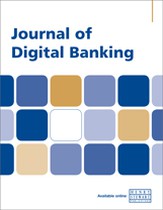The role of bank–FinTech partnerships in creating a more inclusive banking system
Abstract
FinTech firms are often viewed as competing with banks. Instead, more recently, there has been increased partnership and collaboration between FinTech firms and banks. These partnerships have allowed banks to access more information on consumers through data aggregation, artificial intelligence/machine learning (AI/ML) and other tools. This paper explores explore the demographics of consumers targeted by banks that have entered into such partnerships. Specifically, the paper tests whether banks are more likely to extend credit offers (by mail) and/or credit originations to consumers who would have otherwise been deemed high risk, either because of low credit scores or lack of credit scores altogether. The paper uses data on credit offers based on a survey conducted by Mintel, as well as data on credit originations based on the Federal Reserve’s Y-14M reports. Additionally, the paper analyses a unique data set of partnerships between FinTech firms and banks compiled by CB Insights to identify the relevant partnerships. The paper concludes that banks are more likely to offer credit cards and personal loans (and grant larger credit limits) to the credit-invisible and below-prime consumers after the FinTech partnership period. Similarly, it finds that FinTech partnerships result in banks being more likely to originate mortgage loans (and grant larger loan amount) to nonprime homebuyers. Overall, the paper concludes that bank/FinTech partnerships could help to move towards a more inclusive financial system.
The full article is available to subscribers to the journal.
Author's Biography
Alan Chernoff worked as a research intern at the Federal Reserve Bank of Philadelphia while completing his PhD in economics at Rutgers University. Prior to that, he worked as an economist at Stone McCarthy Research Associates. His main areas of research are financial econometrics and FinTech, with a focus on Big Data, forecasting and machine learning.
Julapa Jagtiani is senior economic adviser and economist at the Federal Reserve Bank of Philadelphia, a Central Bank research fellow at the Bank for International Settlements (BIS) and a fellow member of the Wharton Financial Institutions Center. At the Federal Reserve, Dr Jagtiani has participated in and led several supervisory policy initiatives, including Basel capital requirements for large banks, CCAR stress testing and, more recently, FinTech supervision programme focusing on FinTech innovations and regulatory policies. Dr Jagtiani has published influential research papers in top finance journals, including the Journal of Financial Economics; Journal of Money, Credit, and Banking; Journal of Banking and Finance; Financial Management. Dr Jagtiani has also been leading the efforts at the Philadelphia Fed in organising the Annual FinTech Conferences, which bring together world-renowned experts from various backgrounds to discuss topics around FinTech innovations, including Blockchain; cloud computing; FinTech partnerships; cryptocurrencies; real-time payments; buy now, pay later (BNPL); central bank digital currency (CBDC); decentralised finance (DeFi); quantum computing; and potential policy solutions. Dr Jagtiani has a PhD in Finance and an MBA from New York University’s Stern School of Business, where she held the Rockefeller Foundation Fellowship.
